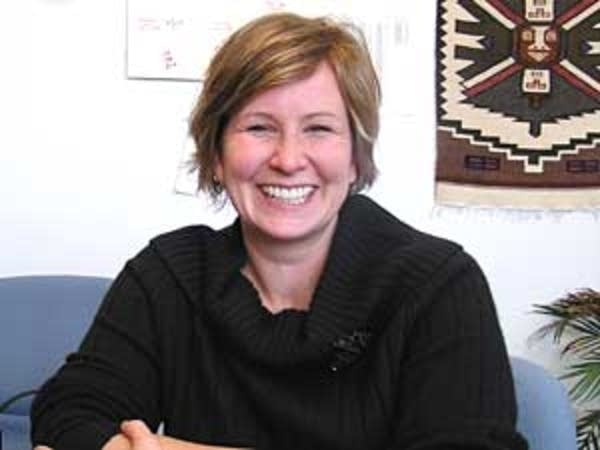A year after shootings, little has changed in mental health care for kids

One year after the shootings on the Red Lake reservation and the calls it provoked for better mental health care services for Minnesota children, Twin Cities public school social worker Anne McInerny says there's no improvement.
"Unfortunately, I have to say I don't think they've changed at all," she says.
The picture one year later for Reenie Engstrom is the same. Engstrom leads a Duluth area program which finds help for people who need mental health services.
"There's been no change," she says. "It feels like it's worse. I can't say that it's worse. Maybe it's just the continued frustration that makes it seem worse."
Create a More Connected Minnesota
MPR News is your trusted resource for the news you need. With your support, MPR News brings accessible, courageous journalism and authentic conversation to everyone - free of paywalls and barriers. Your gift makes a difference.
State officials say more than 40,000 Minnesota school children are getting publicly funded care for a range of emotional and mental heath conditions.

As large as the number sounds, Dr. Will Dikel says it's a fraction of those who need the help. Dikel is a Minneapolis child and adolescent psychiatrist. He lectures around the country and consults with school districts on ways to deliver mental health services. Dikel says one year after the school shootings, he's seen nothing to change the findings of a national study.
"The surgeon general's report indicated that only one out of five children with mental health disorders gets any treatment," he says.
Social worker Anne McInerny, who directs a Twin Cities public school mental health program for 22 children, says the program is full. When she calls other services seeking help for students who need more intensive help more often than not, McInerny says, they tell her they are full, too.
"A lot of the outside community services' funding has kind of gone down and the needs aren't being met," she says.
At the same time, McInerny says, there's no let-up in demand. She says she thought the rising number of children seeking help was part of a cycle that would wind down but it hasn't.
Instead she sees an increase in the forces which experts cite as contributing factors to mental illness in children.
There's been no change. It feels like it's worse.
"Housing and poverty and all those things seem to be getting worse and I think the students show us that," she says.
Nearly everyone points to school as the logical place where children who need help should get it. But Barbara Harrison, a Twin Cities parent of a child with neurobiological disease says, most school staff don't have the training to recognize mental illness when they see it.
She says parents are told, 'Your child looks fine to us. It must be something you're doing at home that's causing this.'
When parents are believed and do get a referral to see a professional, Reenie Engstrom in Duluth says, long waits are common.
"It is still months and months and months to get a child an appointment. It is still often times that if a child is in crisis and taken down to our local mental health inpatient facility they are often saying, 'Nope, the child is not bad enough or we don't have a bed or he's not in an extreme enough crisis,'" she says.
Part of the reason for the strain on mental health services for children is budget cuts. The decline in state dollars started three years ago after several years of increases.

Charlie Kyte, Executive Director of the Minnesota Association of School Administrators, social worker Anne McInerny and 33 others serve on a task force are advising state officials how to lower barriers to mental health care. Kyte says a lid on federal dollars is putting a strain on the system.
"Special ed funding both in the state of Minnesota and nationally has really been capped, which is where many of the dollars would come from," he says.
Kyte says another pot of federal dollars that counties and school districts share for supplying children's mental health services has dried up altogether.
Gov. Tim Pawlenty's mental health initiative would restore and expand some services. He proposes funding it in large measure with surplus dollars from the state's health care access fund.
Rep. Mindy Greiling, DFL-Roseville, says proposals she supports in the house and senate would put new money toward screening children.
"Kids would get help early and identified early and then we would hopefully be able to work up from there to have more screening in the schools," she says.
But a fundamental issue remains.
Dr. Read Sulik, a St. Cloud psychiatrist, says there aren't enough professionals to help the children.
"We have an embarrassing, critical shortage in Minnesota, that's considered to be one of the most progressive health care states...an embarrassing, critical shortage of psychiatrists and particularly, child and adolescent psychiatrists," he says. The reason is government and insurance company reimbursement rates.
Payment rates for cardiologists and other specialists is high enough for them to make money. It's not, Sulik says, for pyschiatrists. The result is few are attracted to the practice.
Minnesota Department of Human Services spokeswoman Glenace Edwall says Gov. Pawlenty's initiative proposes higher reimbursement rates.
Edwall agrees more money is needed to supply mental health care to children who need it. But she says the system is fractured with complicated payment systems and very little communication among people supplying services. As much as money, Edwall says the system needs streamlining.
"In particular, we need much better coordination across and among systems to make things much easier for families, access easier to families, and make sure that everybody, like the child welfare and education system, and the mental health provider, are all reading off the same page about what is the right thing to do with a particular and family," she says.
Parent and mental health advocate Barbara Harrison, a clinical social worker and registered nurse, says the risk of not helping children who are mentally ill is school violence or more people in our correctional system.
"Certainly, the issue is money and resources, but there is another factor here and that's the will and willingness to work with these kids who are the hardest kids in the schools in many cases," she says. "Certain districts have the leadership to take that one and others do not."
There are some bright spots.
Mental health advocates say there seems to be broader public awareness of the problem even if there isn't enough money to address it. There's a state requirement that teachers each year take a refresher course on identifying the symptoms of mental illness.
Lobbying to improve conditions seems to be more intense. The three year old Minnesota Mental Health Action Group and a task force of 35 people are suggesting reforms.
And parents and other advocates continue to press the case that, as the Red Lake shootings so tragically illustrate, treating mental illness saves more than the costs incurred by ignoring it.
